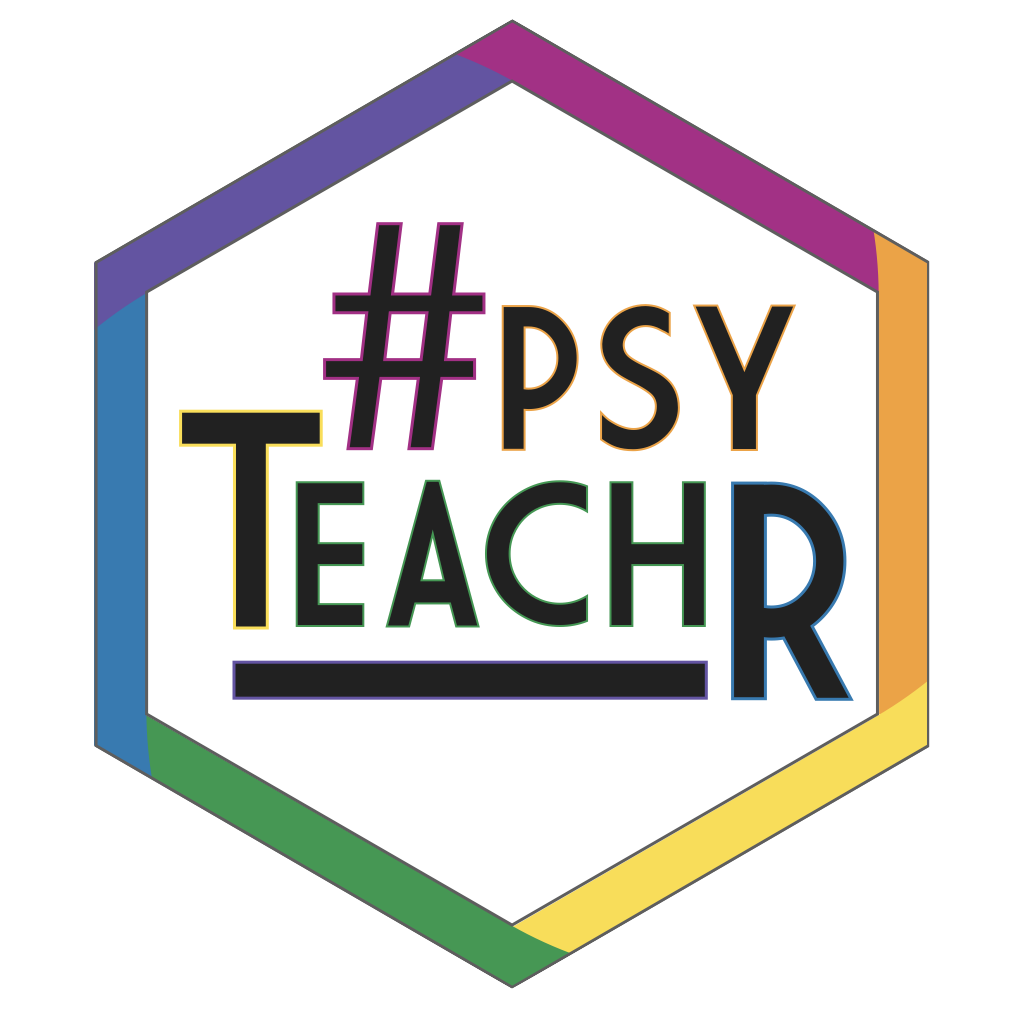sim_data <- faux::sim_design(
within = list(version = c(V1 = "Version 1", V2 = "Version 2"),
condition = c(ctl = "Control", exp = "Experimental")),
between = list(age_group = c(young = "Age 20-29", old = "Age 70-79")),
n = 30,
mu = c(100, 100, 100, 100, 100, 90, 110, 110),
sd = 20,
r = 0.5,
dv = c(score = "Score"),
id = c(id = "Subject ID"),
vardesc = list(version = "Task Version",
condition = "Experiment Condition",
age_group = "Age Group"),
long = TRUE
)Fake It Until You Make It
How and why to simulate research data

tinyurl.com/RGlasgow-fakeit
Abstract
Being able to simulate data allows you to prep analysis scripts for pre-registration, calculate power and sensitivity for analyses that don’t have empirical methods, create reproducible examples when your data are too big or confidential to share, enhance your understanding of statistical concepts, and create demo data for teaching and tutorials. This talk will cover the basics of simulation using the R package {faux}. We will simulate data with factorial designs by specifying the within and between-subjects factor structure, each cell mean and standard deviation, and correlations between cells where appropriate. This can be used to create simulated data sets to be used in preparing the analysis code for pre-registrations, registered reports, or simulation-based power analyses.
Why Simulate Data?
Pre-Registration

Prep analysis scripts for pre-registration or registered reports
Power

Calculate power and sensitivity for analyses that don’t have empirical methods
Reproducible Examples

Create reproducible examples when your data are too big or confidential to share
Enhance Understanding

Enhance your understanding of statistical or other complex concepts
Teaching Data

Create demo data for teaching and tutorials
Faux

Shiny App
Faux Code
Faux Design Parameters
| age_group | version | condition | V1_ctl | V1_exp | V2_ctl | V2_exp | n | mu | sd |
|---|---|---|---|---|---|---|---|---|---|
| young | V1 | ctl | 1.0 | 0.5 | 0.5 | 0.5 | 30 | 100 | 20 |
| young | V1 | exp | 0.5 | 1.0 | 0.5 | 0.5 | 30 | 100 | 20 |
| young | V2 | ctl | 0.5 | 0.5 | 1.0 | 0.5 | 30 | 100 | 20 |
| young | V2 | exp | 0.5 | 0.5 | 0.5 | 1.0 | 30 | 100 | 20 |
| old | V1 | ctl | 1.0 | 0.5 | 0.5 | 0.5 | 30 | 100 | 20 |
| old | V1 | exp | 0.5 | 1.0 | 0.5 | 0.5 | 30 | 90 | 20 |
| old | V2 | ctl | 0.5 | 0.5 | 1.0 | 0.5 | 30 | 110 | 20 |
| old | V2 | exp | 0.5 | 0.5 | 0.5 | 1.0 | 30 | 110 | 20 |
Faux Design Plot

Faux Data Plot

Power Simulation: Replicate Data
sim_data <- faux::sim_design(
within = list(version = c(V1 = "Version 1", V2 = "Version 2"),
condition = c(ctl = "Control", exp = "Experimental")),
between = list(age_group = c(young = "Age 20-29", old = "Age 70-79")),
n = 30,
mu = c(100, 100, 100, 100, 100, 90, 110, 110),
sd = 20,
r = 0.5,
dv = c(score = "Score"),
id = c(id = "Subject ID"),
vardesc = list(version = "Task Version",
condition = "Experiment Condition",
age_group = "Age Group"),
long = TRUE,
rep = 100
)Power Simulation: Analysis Function
# setup options to avoid annoying afex message & run faster
afex::set_sum_contrasts()
afex::afex_options(include_aov = FALSE)
analysis_func <- function(data) {
a <- afex::aov_ez(
id = "id",
dv = "score",
between = "age_group",
within = c("version", "condition"),
data = data)
as_tibble(a$anova_table, rownames = "term") |>
rename(p = `Pr(>F)`)
}Power Simulation: Analysis Result
| term | num Df | den Df | MSE | F | ges | p |
|---|---|---|---|---|---|---|
| age_group | 1 | 58 | 1,686.9 | 0.00 | 0.000 | 0.991 |
| version | 1 | 58 | 200.2 | 25.52 | 0.038 | 0.000 |
| age_group:version | 1 | 58 | 200.2 | 26.10 | 0.039 | 0.000 |
| condition | 1 | 58 | 146.4 | 0.03 | 0.000 | 0.870 |
| age_group:condition | 1 | 58 | 146.4 | 4.68 | 0.005 | 0.035 |
| version:condition | 1 | 58 | 213.5 | 1.55 | 0.003 | 0.218 |
| age_group:version:condition | 1 | 58 | 213.5 | 0.78 | 0.001 | 0.382 |
Power Simulation
| term | power |
|---|---|
| age_group | 0.11 |
| age_group:condition | 0.22 |
| age_group:version | 0.97 |
| age_group:version:condition | 0.26 |
| condition | 0.24 |
| version | 0.99 |
| version:condition | 0.26 |
Further Resources
Thank You!

 ]
]



